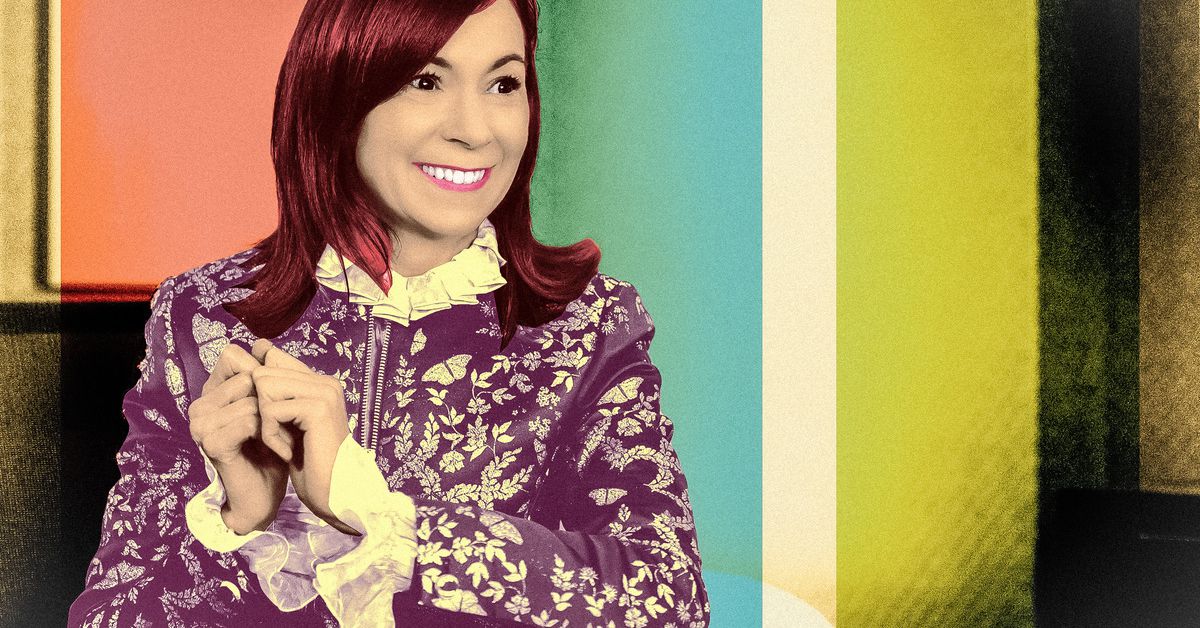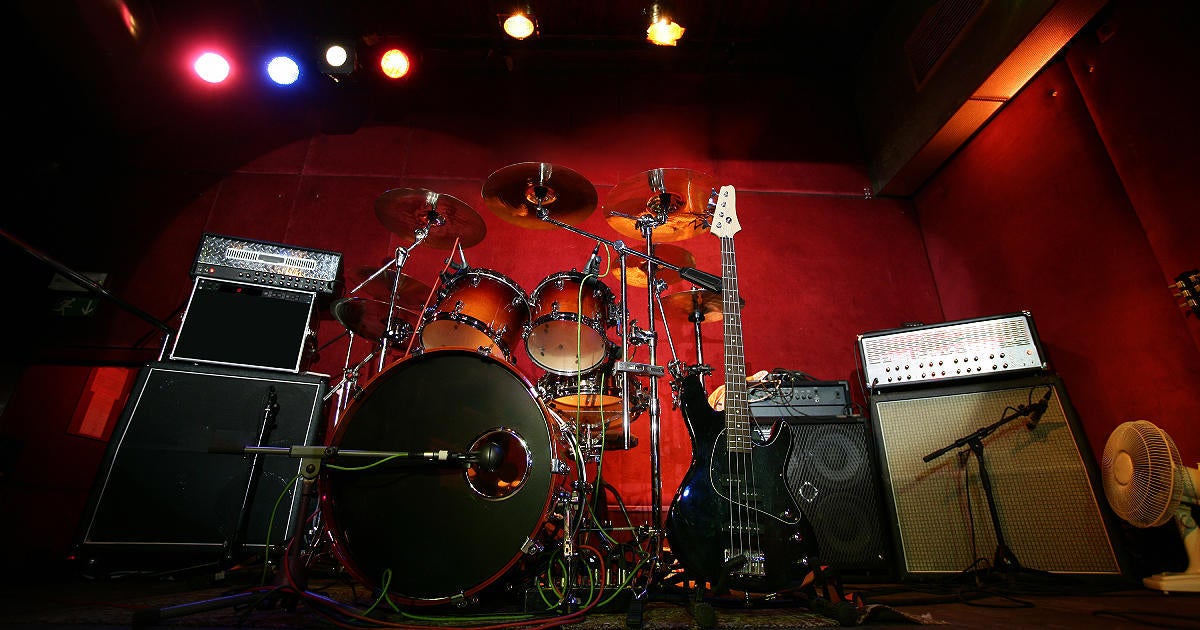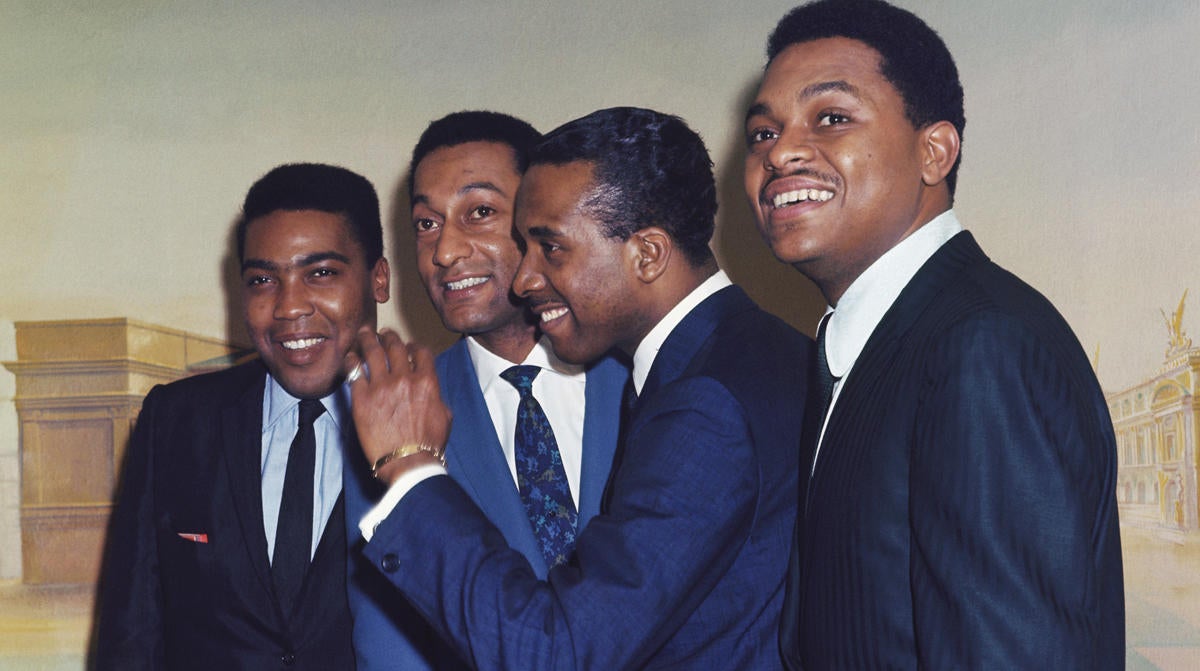“We’re Going to Become the Biggest Elsbeth”: Carrie Preston on ‘The Good Wife’ Favorite Elsbeth Tascioni’s New Spinoff
When my colleague Katie Baker ranked attorneys from The Good Wife in 2016, the inimitable Elsbeth Tascioni—a deceptively lethal litigator whose distractible manner, eccentric style, and deductive leaps helped her win every case via courtroom rope-a-dope—came in first (as she should have). “Let’s start talking spinoff,” Katie advised. Several years later, CBS accepted the suggestion.
Elsbeth, the new series centered on the fan-favorite recurring character that Carrie Preston played in 14 episodes of The Good Wife and five more of The Good Fight, premieres on CBS this Thursday (and will also stream a day later on Paramount+). Elsbeth is ever underestimated, but Elsbeth comes from too exalted a TV lineage for viewers not to have high expectations. Like the series it spun off from, Elsbeth was created by broadcast power couple Robert and Michelle King, who cowrote the premiere (which was directed by Robert). It stars Preston, Wendell Pierce, and Carra Patterson, alongside the usual lineup of great guest stars (Stephen Moyer, Jane Krakowski) and New York theatrical luminaries (Linda Lavin) who pack the call sheets of the Kings’ prestige stable of network dramedies. With the Kings’ other active series, Evil (on which Preston’s husband, Michael Emerson, costars), returning for its fourth and final season in May, Elsbeth is a bid to keep a King creation on TV for the long haul. And it may well work, considering the series’ mainstream-accessible, tried-and-true, retro-chic construction.
In the three episodes of Elsbeth’s 10-episode first season that were screened for critics, the series stands out as another well-written, well-acted entry in the King Televised Universe, though it differs from its small-screen cousins in several respects. Unlike The Good Wife and Fight, it’s a police procedural, not a legal procedural. It’s set in New York, not Chicago. It has a new showrunner, Jonathan Tolins (who worked with the Kings on The Good Fight and BrainDead). And though the series is premised on police wrongdoing—Elsbeth shadows overconfident NYPD detectives as part of a consent decree, correcting the cops and outmaneuvering murderers even as she secretly investigates precinct captain Wagner (Pierce) for corruption—it’s not nearly as political as The Good Fight, for good or ill. It’s a largely lighthearted howcatchem in the Columbo and Poker Face mold, powered by playful, NYC-centric setups and Preston’s appeal.
Preston, 56, has been a staple of stage and screen (both big and small) since the late 1990s, but Elsbeth is her first star vehicle. She also plays a supporting part in the Oscar-nominated The Holdovers, which makes this phase of her career, she says, “a wonderful time” that she feels “very, very humbled and grateful for.” Preston, who was nominated for two Emmys for playing Elsbeth on The Good Wife (and won once), spoke to The Ringer on the eve of Elsbeth’s premiere, almost 15 years after first bringing her iconic character to life.
At what point in your history with this character did an Elsbeth spinoff start to seem conceivable?
I mean, I still am pinching myself, so it still doesn’t even feel real. We haven’t even aired yet. But Robert and Michelle King started asking me if I would be interested in such a thing at the end of The Good Wife. And then I said, “Of course. Of course I’d be interested in that.” And then the timing wasn’t right and then The Good Fight happened and I continued as a guest, happily, and also as a director, happily.
And then it was really during the lockdown, COVID, Robert and Michelle King, rather than watching all of the new shows that they hadn’t watched, they found that they were going back and rewatching episodes of Columbo. And that’s when they said to themselves, “OK, what if Elsbeth was like a Columbo character and we take the structure of Columbo and we trick it out for Elsbeth?” And then that got them excited. But that was four years ago. It takes a long time for these things to happen.
When the Kings first described Elsbeth to you, they told you to think Columbo, but you hadn’t really seen Columbo at the time.
That’s right.
Have you done any procedural research for this show, or have you avoided other shows in the genre to preserve the idiosyncrasies of Elsbeth?
I am a fan of police shows, and I’m a fan of those police procedurals anyway. And I did go back and watch some Columbo just to get inspired. The pace of those shows is so different than the shows that we make now, but this “howdunit,” not whodunit structure, I’ve wanted to re-familiarize myself with. But I’m somebody who really puts myself in the hands of the writing, and I just let that guide me. And luckily, we have great writers.
What challenges did you anticipate in translating Elsbeth from guest star to star star?
Just the volume of the material is way greater than anything I’ve done on television. So just learning how to pace myself, just to maintain the “body budget,” learning one episode while I’m prepping another episode, while I’m shooting something, memorizing lines for something I’m going to do tomorrow while I’m shooting something else. All of which, my character talks a lot. So just learning and figuring out what that workflow is has been the biggest challenge.
Are you able to inhabit Elsbeth any differently or more effectively doing 10 in a row than you were when you were stepping into her shoes more sporadically and having to reconnect with the character?
Yes. I mean, there’s a comfort because I’m doing it every day now. Before, I wouldn’t have played her for a year or two, and then I would have to plop down into it again and I would have to re-remember how I play her. And actually, probably if you look at the 20 episodes that I played her on The Good Wife and The Good Fight, you would probably see me finding it along the way and things changing as we go along based on what the writers were giving me. And now that we’ve taken her out of the world of the courtroom and put her in a police procedural, it means that she’s a little different. We’re seeing her in a different light. We’re seeing her in a different universe. So she’s getting used to it, too, although she turns out to be quite good at it.
We know a bit about the biography of Elsbeth. She has a son, she has an ex-husband, and I’m sure we’ll learn more now that she’s getting her close-up. But I wonder whether the Kings ever told you anything about Elsbeth’s backstory that didn’t make it to the screen, or whether you invented your own history for her that may or may not be considered canonical.
They haven’t shared with me anything other than what you and the other viewers have seen of her past. But I like to think of her as … I mean, we’re going to learn in the series some things about, maybe not the easiest divorce. She loves her son so much, but he kind of keeps her at a distance a little bit. So we’re learning a little bit more about him that I didn’t know. So I feel like I’m learning as the viewers are.
So you never invented in your head, here’s how she got the way she is?
I have my own things, but I think that they’re private, in a way. I think it’s best to kind of keep a little bit of that to yourself because if you share too much, then there’s no mystery, and I think it’s always good to have a little mystery in your work.
I think you and the Kings differ to some degree on this question, which comes up explicitly in the premiere. To what extent, if any, is Elsbeth putting on an act? Is the way she presents herself entirely authentic, or does she sometimes play up her quirkiness so that people will underestimate her?
I do think that she is decidedly who she is. I think that she’s someone who’s extremely present. She approaches the world with a great amount of curiosity and wonder. She is also, in that, aware of how people receive her. I think there’s a vulnerability there that I like to always layer in. I think that always makes characters more interesting, when we see their vulnerabilities. She’s like a dog with a bone when she’s trying to solve a case, whether it be a legal case or, in this situation, a murder. She’ll do whatever it is that she needs to do to get what she needs to find justice or truth.
How much of her mannerisms are in the script versus what you supply yourself, and has that ratio changed over time?
They pretty much let me do all of that. They’ll say things in the script like, “Elsbeth Elsbeths,” as like a verb, and then, “Elsbeth … Elsbeths.” In other words, “Carrie, do your thing, whatever you want to do there.” In the beginning, they used to write the word “pause.” And that was really the most fascinating thing for me with the character was “Well, what is that pause about? OK, I see all the words that I’m saying, but what am I thinking in that pause?” That, to me, was what unlocked the character. They don’t write the pause anymore. I just put it in wherever I feel it needs to be.
What does Elsbeth have in common with Carrie, and in what ways do you differ?
We’re both very good at multitasking. Thankfully, I do have a multitasking skill because right now I’m being required to use it quite a bit in this job that I have, which I love. So I do have that in common with her. Her brain, however, is like Mensa-level genius. That’s not me. She has an insane photographic and also kind of energetic memory. Everything that she’s ever seen and experienced somehow ends up in the Rolodex of her brain, and that’s definitely something that I do not possess.
And as for her distinctive style—the tote bags, the blouses with bows—how did those become part of the character, and what, if anything, are they meant to convey?
Well, we have the genius that is Dan Lawson doing our costume design. And he has been with The Good Wife and Fight universe since day one. So he came up with the look of the character, and we’ve really maintained that the whole time. When we went to do the pilot, Dan said to Robert and Michelle, “OK, she’s the lead now. I want to take her from the quirky character sidekick and I want to just give her a little bit more of an elegant silhouette, maybe [make her] more cosmopolitan. And they said, “Absolutely not. She remains exactly who she was.” And they are correct because that makes her stand out more. It also is such an expression of who she is. She’ll put on a blouse like that because it makes her feel good. By the way, a very expensive blouse. She has expensive taste. It might not be everybody’s taste, but she’s shopping at some high-end places. She’s done very well for herself in her job.
The thing that’s so great about the tote bags is those came in pretty early, and they just became appendages of Elsbeth. But we don’t ever really know what’s in them, and I love that. I like the mystery of not knowing what’s in them, because she’s carrying things around just in case. You never know when you might need, whatever, a protractor. Who knows what’s in there? I mean, I have my ideas of what’s in there, but we can put any prop in there that we want.
In procedurals with a female lead, the main character is often—not always—an amateur detective. Monk and Columbo are homicide detectives, and Sherlock Holmes and Hercule Poirot are professional full-time investigators the police sometimes seek out, whereas Jessica Fletcher and Miss Marple and Veronica Mars and Charlie Cale are amateurs and interlopers whose presence is sometimes resented, even though they’re clearly brilliant. Of course, you do have shows like Castle that flip the script, and then there’s Cold Case and The Closer and Mare of Easttown and others where the protagonist is on the inside. But I wonder what you make of that outsider detective tradition that Elsbeth is now a part of.
I feel grateful that I’m in the company of those iconic characters, and Elsbeth has her own twist on that. I think it’s fun. I think it keeps the show fresh, but she’s figuring it out as she’s going along. Other characters underestimate her, and that becomes her superpower. I think there are a lot of women in this world who are underestimated and underappreciated, so I feel like I’m representing.
There’s a Cary Agos name-drop in the premiere. Should viewers expect any more substantive crossovers from the Good Wife and Fight universe at some point in the series?
I think Robert and Michelle put that in there as a wink, wink, one little Easter egg for the fans. I think with this show, we are going to probably get a whole new audience that never even saw those two shows. That’s what we’re hoping, and the fact that it’s set in New York. Right now, there’s no plans to bring in anybody from those two universes. But maybe if we’re lucky enough to get another season, and if we’re lucky enough to have one of those actors be available, we could maybe get them to reprise their role for a moment.
I want to pitch you on a professional and personal crossover for you and your husband, because you’ve appeared together in previous projects: Elsbeth Tascioni investigates Leland Townsend from Evil.
Oh, wouldn’t that be so good?
Who’d have the upper hand?
Michael and I have talked about that and how wonderful it would be to see those two characters go head-to-head. I think the guy who has the demon or the devil on speed dial might have something on Elsbeth. But I feel like Elsbeth might have some angels on speed dial. We could duke it out.
Lastly, the Elsbeth name has been a big part of both the series and its marketing. I looked up Elsbeth in the Social Security Administration names database, and it has not placed in the top 1,000 girls names at any point since 1900.
It has not.
Have you met many Elsbeths? Have you inspired any new Elsbeths?
Some fans have told me that they’ve named their kids Elsbeth, so that’s truly, wow, what an honor. But I think when you go to Google and you put famous Elsbeths, the first one is Elsbeth Schragmüller, who was a German spy in World War I. So it’s our goal on the TV show Elsbeth, we’re going to take that Elsbeth Schragmüller down. We’re going to become the biggest Elsbeth, if we have anything to do with it.







